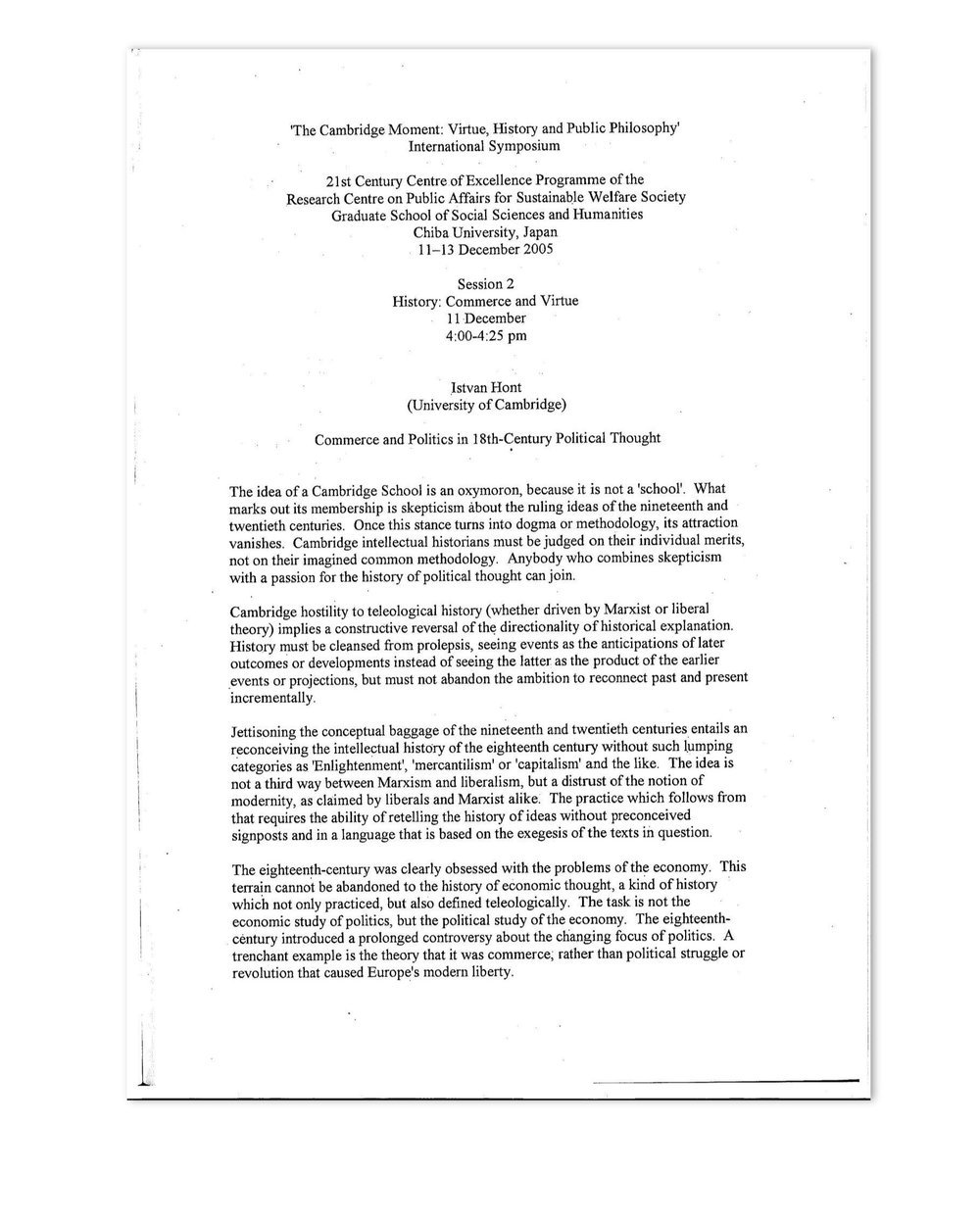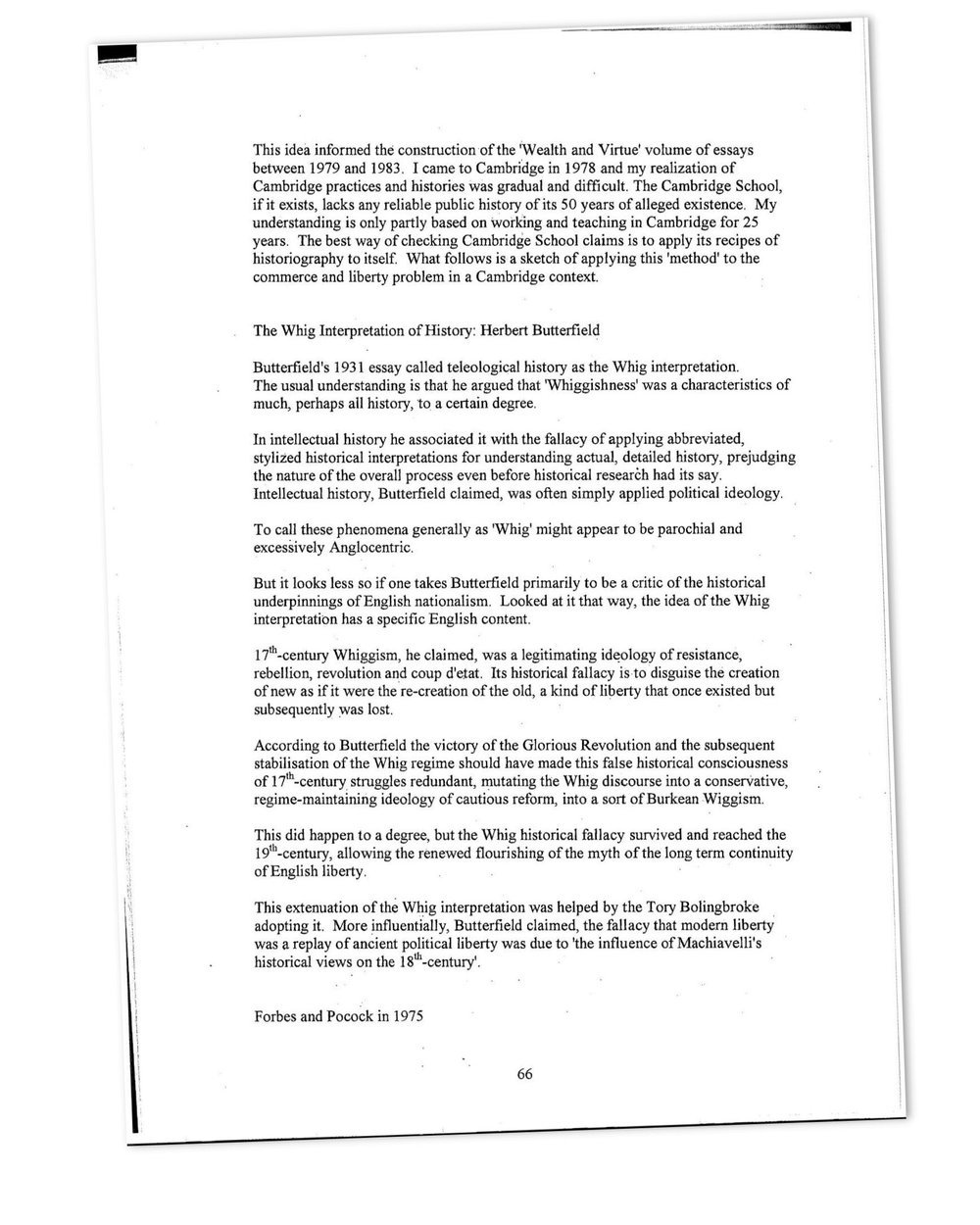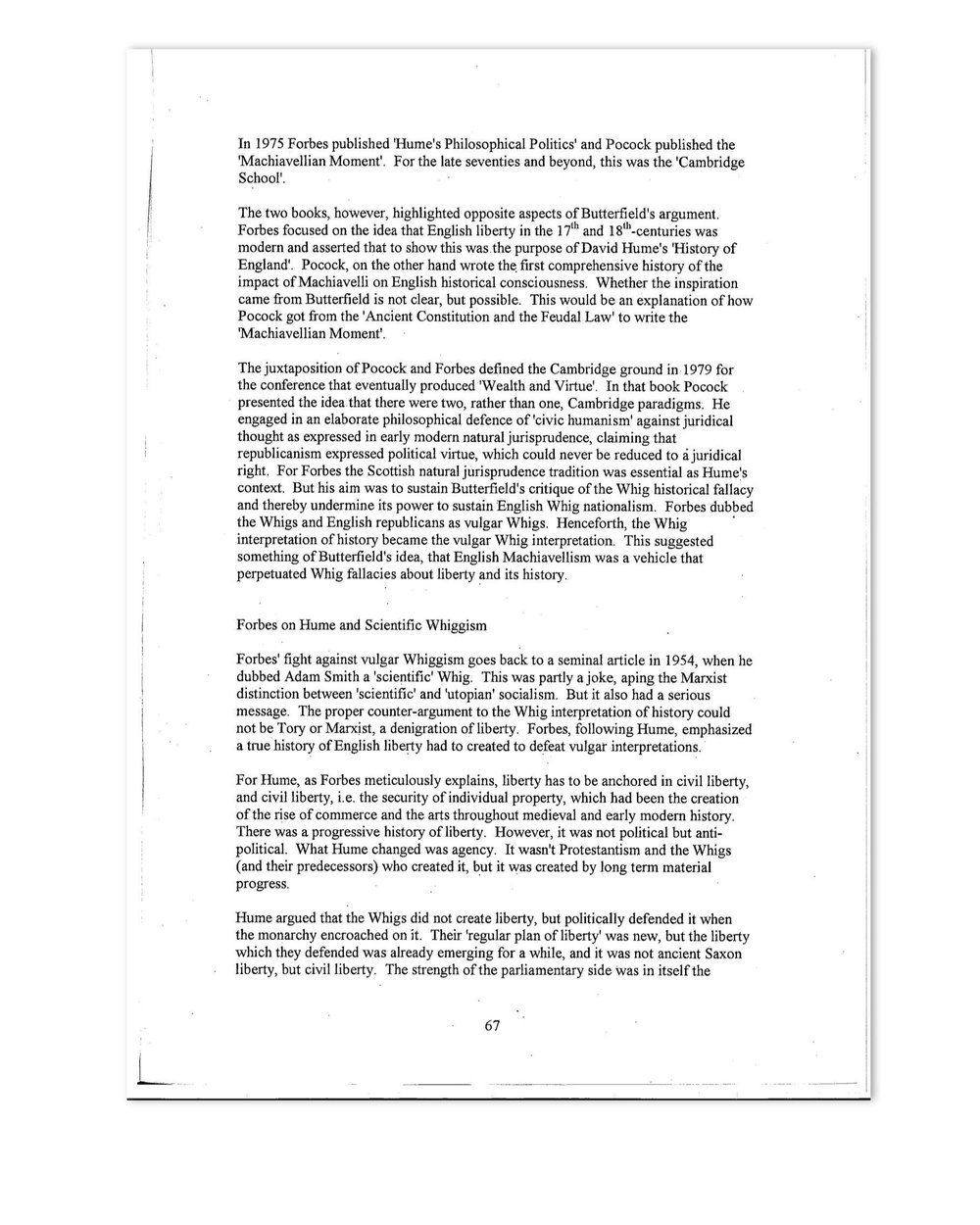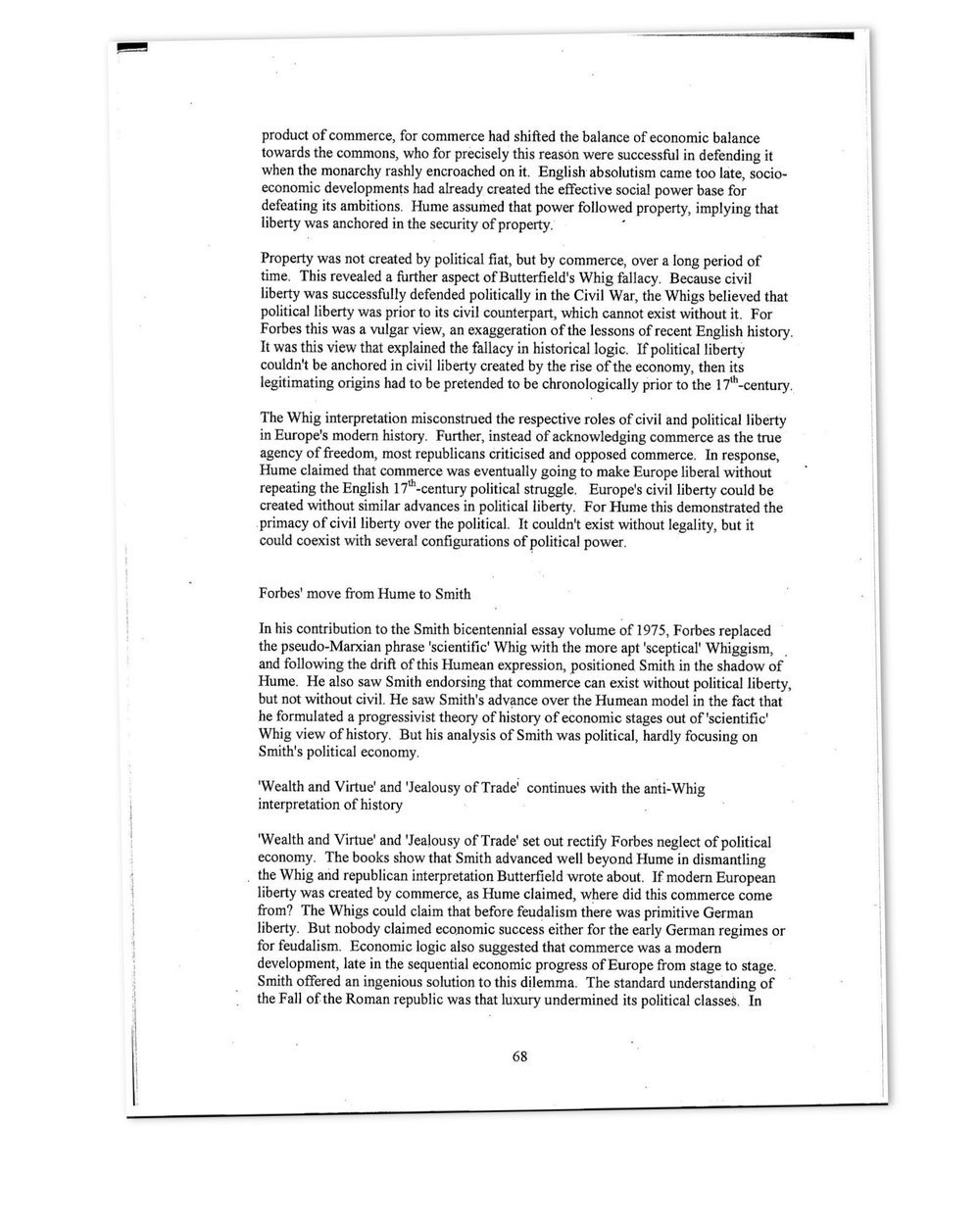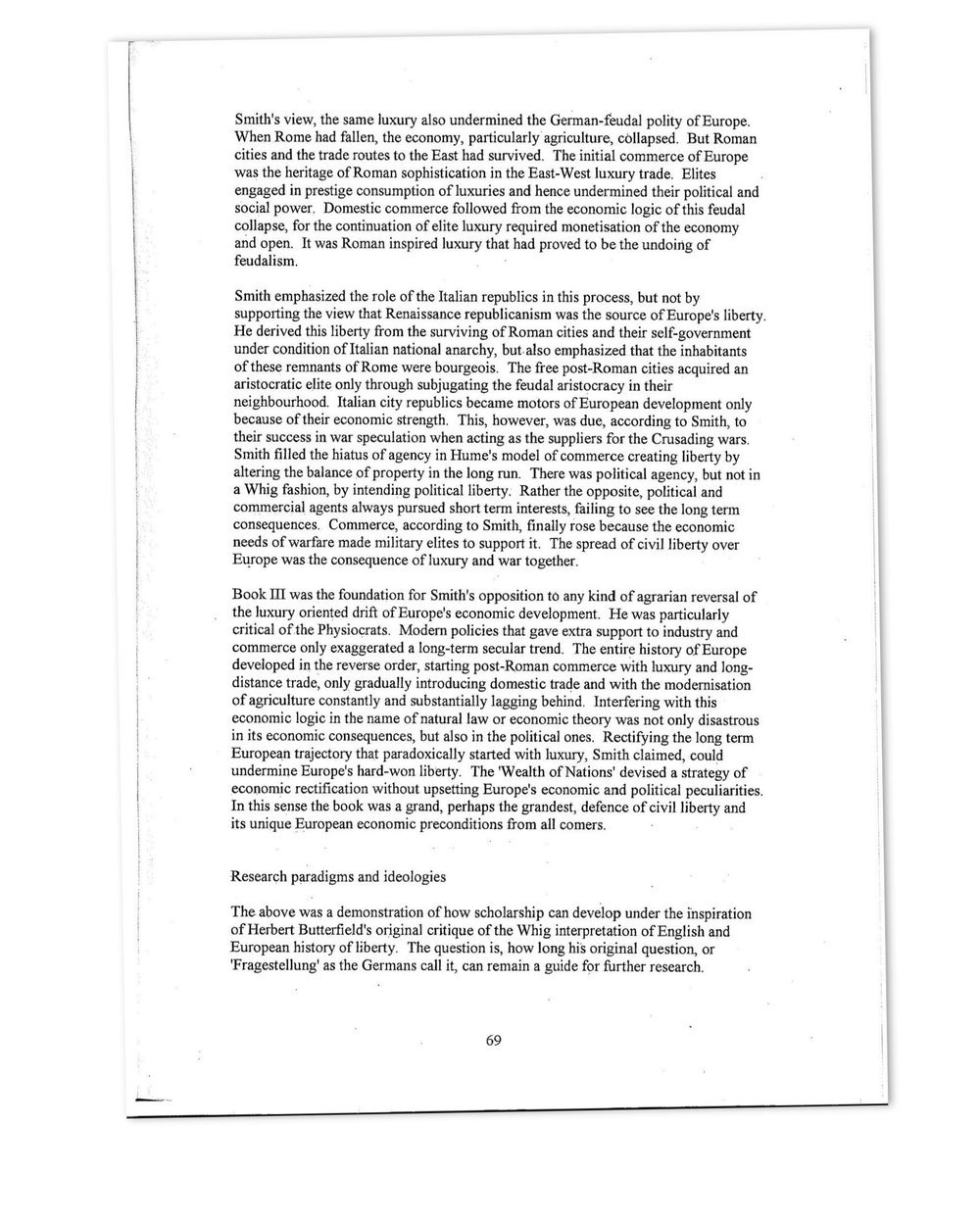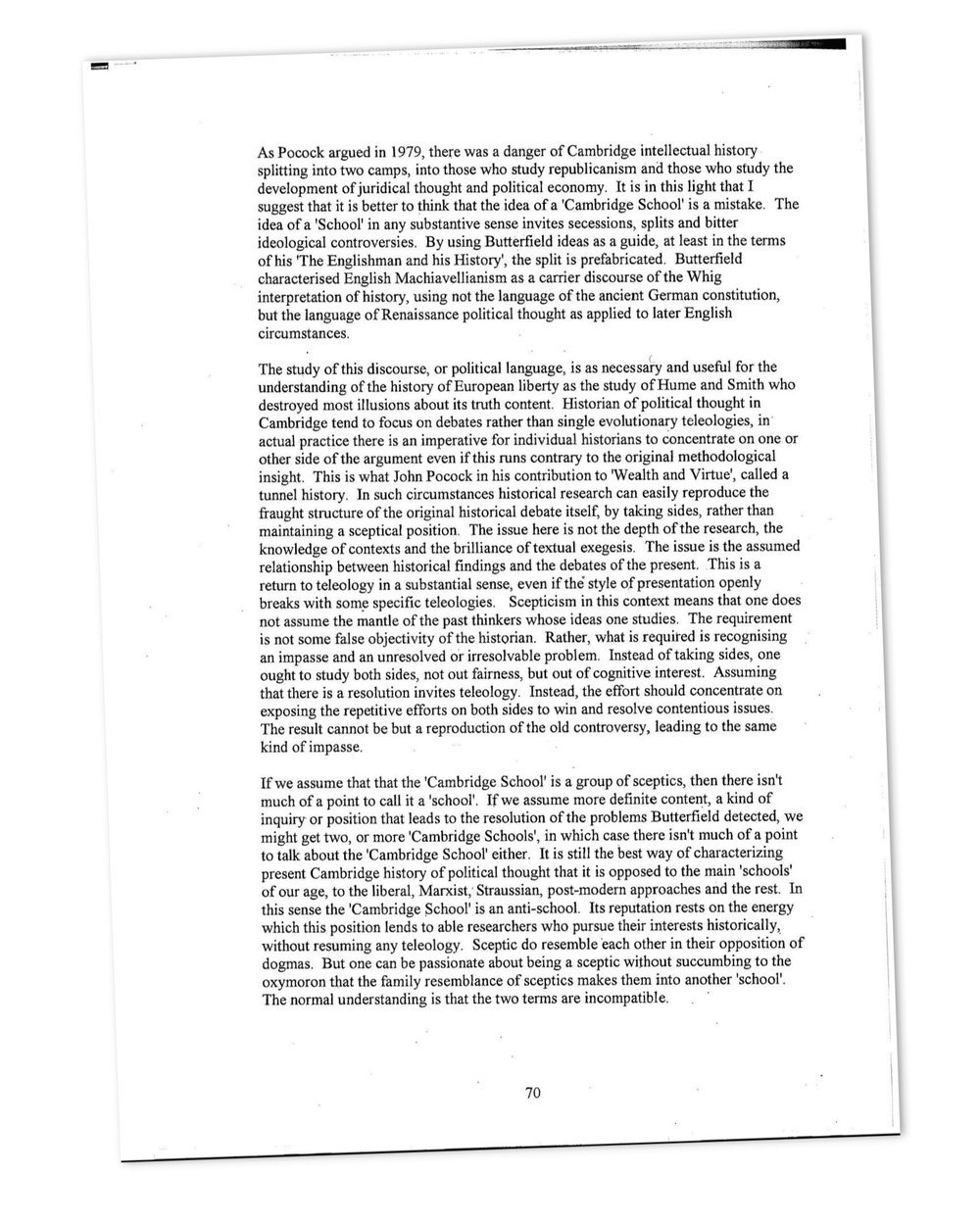The Cambridge Moment
Item No. 14.
István Hont
The Cambridge Moment: Commerce and Politics in 18th Century Political Thought
For most of his academic life, István Hont was a Fellow of King’s College, Cambridge, but as an intellectual historian he never adopted the label of the ‘Cambridge school’ with much ease or satisfaction. This became abundantly clear in 2005 when he and a number of esteemed Cambridge colleagues gathered at a major international symposium at Chiba Univesity in Japan, where they had been summoned to introduce the Cambridge ‘Moment’ and method to a predominantly Japanese audience. To the confusion of some of his listeners, no doubt, Hont began his lecture by declaring that there was no such thing as a ‘Cambridge school’. Instead, what he and his fellow Cambridge historians had in common was a scepticism about inherited ‘lumping categories’ and a historicist commitment to understanding the history of political thought without ‘preconceived signposts’. Anyone who adhered to this negative agenda could join the ‘school’, which was thus more accurately described as an ‘anti-school’ whose identity could only be understood in reference to the specific contributions and concerns of its members. Hont then proceeded to give an historical account of his own Cambridge experience, which situated the Cambridge contributions in the terrain projected by Herbert Butterfield and defined by J. G. A. Pocock and Duncan Forbes. The latter’s work on Hume and Smith was especially important as a catalyst for Hont’s own research project, both in the sense that it recast the two Scotsmen as ‘sceptical Whigs’, and thus as exemplary subverters of Whig history in their own right, but also because it left room for an improvement that Hont was quick to identify. Forbes had focussed exclusively on the politics of Hume and Smith and ignored their economic ideas, thinking these more appropriately placed in the hands of economists and historians of economic thought. This was a complete mistake, according to Hont, and in retrospect he described the central aim of his own work as an attempt to rectify this neglect of economic ideas.
In 2005, Hont published Jealousy of Trade, a collection of his major essays combined with a new 150-page introduction, and his lecture in Japan later that year on the ‘Cambridge Moment’ - made public here for the first time - might serve as a methodological (or anti-methodological) introduction to what Hont was attempting to do in his research on 18th century political economy.
- L. Andersen


